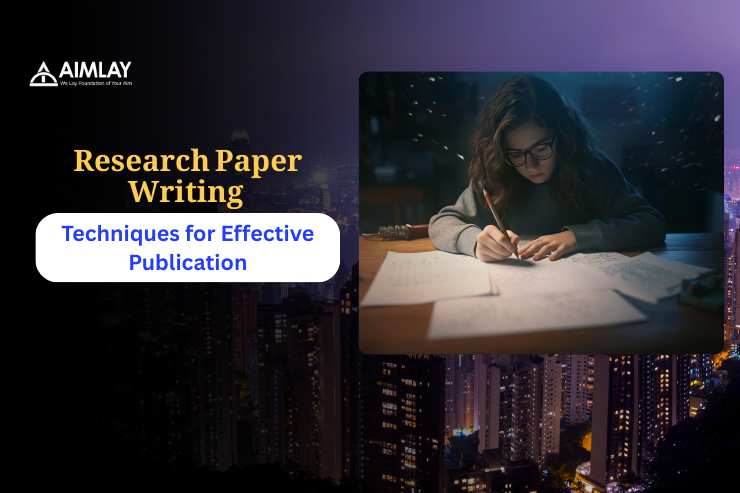PhD Civil Engineering: Admission, Eligibility, Entrance Exam, Syllabus, Career Scope
- aimlay01
- Apr 15, 2025
- 4 min read
Civil engineering is the backbone of infrastructure development across the globe. From designing towering skyscrapers to planning smart cities, civil engineers play a crucial role in shaping the physical world. For those seeking to go beyond undergraduate and postgraduate education to pursue research and academic excellence, a PhD in Civil Engineering opens up a world of opportunities.
In this blog, we’ll explore everything you need to know about a PhD in Civil Engineering — from admission requirements and entrance exams to the syllabus structure and career prospects.
What is a PhD in Civil Engineering?
A Doctor of Philosophy (PhD) in Civil Engineering is the highest academic qualification in the field. It involves original research in areas like structural engineering, transportation, geotechnical engineering, environmental engineering, water resources, construction management, or sustainable design. The degree typically takes 3 to 5 years to complete and is research-intensive, culminating in the submission and defense of a dissertation.
Admission Process
Admission to a PhD program in Civil Engineering generally involves several steps:
1. Application Form
Candidates need to fill out the application form of the university or institute they are applying to. This may be done online or offline depending on the institution.
2. Entrance Exam / Interview
Most institutes require an entrance test or accept scores from national-level exams such as GATE, UGC-NET, or CSIR-NET. Shortlisted candidates are typically called for a personal interview or research proposal presentation.
3. Research Proposal Submission
Some universities require candidates to submit a preliminary research proposal outlining their intended area of research, objectives, and methodology.
4. Document Verification
This includes submission of academic transcripts, letters of recommendation, Statement of Purpose (SOP), and other relevant documents.
Eligibility Criteria
While requirements may vary slightly across universities, here are the general eligibility criteria:
Educational Qualification:Master’s degree (M.E./M.Tech) in Civil Engineering or a related field with a minimum of 55% to 60% aggregate marks. Some universities also consider candidates with a B.Tech degree from prestigious institutes like IITs, if they have an exceptional academic record.
Entrance Exam:Valid scores in GATE, UGC-NET, CSIR-NET, or institutional entrance exams are usually required.
Work Experience (Optional):Candidates with prior research experience or relevant industry experience may have an added advantage.
Interview:A personal interview is often part of the selection process, evaluating the candidate's research aptitude, subject knowledge, and communication skills.
Entrance Exams
Here are some of the common entrance exams for PhD Civil Engineering:
Exam | Conducting Body | Details |
GATE | IITs/National Coordination Board | Accepted by most IITs, NITs, and several universities |
UGC NET | NTA (National Testing Agency) | Primarily for research/lectureship in Indian universities |
CSIR NET | CSIR | For science and engineering streams |
University Entrance Exams | Individual Universities | Institutes like IITs, NITs, BITS Pilani, etc., may conduct their own tests |
Tip: It’s important to check each university’s specific entrance requirements as they can vary.
Syllabus Overview
The syllabus of a PhD in Civil Engineering is not as fixed as undergraduate or postgraduate programs, since it's largely research-driven. However, students usually go through:
Coursework (First 1–2 Semesters)
The initial phase involves completing coursework to build a strong theoretical foundation. Subjects may include:
Research Methodology
Advanced Structural Analysis
Finite Element Methods
Soil-Structure Interaction
Environmental Impact Assessment
Advanced Concrete Technology
Hydrology and Water Resources Engineering
Advanced Transportation Engineering
Statistical Methods in Engineering Research
Research Work
After coursework, students work under a supervisor on their chosen research topic. Key activities include:
Literature review
Problem identification
Experimentation/Modeling/Simulation
Paper publication in journals/conferences
Thesis writing and submission
Thesis Defense (Viva Voce)
At the end of the program, students must defend their thesis in front of a panel of experts.
Research Areas in Civil Engineering
Some popular research domains include:
Structural Engineering: Earthquake-resistant structures, smart materials, sustainable building systems.
Geotechnical Engineering: Soil mechanics, foundation engineering, ground improvement techniques.
Transportation Engineering: Traffic modeling, urban mobility, intelligent transportation systems (ITS).
Environmental Engineering: Water treatment, air pollution control, waste management, climate adaptation.
Water Resources Engineering: Hydraulics, irrigation systems, flood modeling.
Construction Management: Project planning, risk analysis, building information modeling (BIM).
Career Scope After PhD in Civil Engineering
A PhD in Civil Engineering unlocks various high-level career opportunities in academia, research, government, and industry. Here's a breakdown:
1. Academia
Professor/Lecturer: Teach at engineering colleges and universities.
Postdoctoral Researcher: Continue research in specialized fields globally.
Academic Administrator: Positions like Head of Department or Dean.
2. Research Development
Work in RD wings of construction companies, government bodies, or think tanks.
Contribute to national and international infrastructure projects.
3. Government Jobs
Scientist roles in DRDO, ISRO, CSIR, Central Water Commission, CPWD, etc.
Policy advisory roles in urban development, transportation, and environmental bodies.
4. Private Sector
Senior roles in engineering consulting firms (e.g., AECOM, LT, WSP).
Lead infrastructure design, analysis, or sustainability initiatives.
Roles in BIM, project planning, and structural audits.
5. Entrepreneurship
Start your own consulting firm, construction company, or technology startup.
Innovate in areas like green buildings, disaster-resistant structures, or sustainable design.
6. International Opportunities
A PhD is highly valued globally. With publications and collaborative research, candidates can seek:
Academic roles abroad
Research projects with international funding
Positions in global civil engineering firms
Salary Expectations
The salary after a PhD in Civil Engineering depends on the role and sector:
Role | Average Salary (INR per annum) |
Assistant Professor | ₹6–9 LPA |
Senior Research Scientist | ₹10–15 LPA |
Structural Consultant | ₹12–20 LPA |
Project Manager | ₹8–15 LPA |
International Opportunities | ₹25 LPA and above |
Note: Salary can vary based on location, experience, and specialization.
Top Institutes Offering PhD in Civil Engineering (India)
IITs (IIT Bombay, Delhi, Madras, Kanpur, Kharagpur)
NITs (NIT Trichy, Surathkal, Warangal, Calicut)
BITS Pilani
IISc Bangalore
Delhi Technological University (DTU)
Jadavpur University
Anna University
Many of these institutions offer funding or stipends to full-time PhD scholars under various fellowships (e.g., MHRD, CSIR).
Tips for Aspiring PhD Students
Choose a research area you’re passionate about — it’s a long-term commitment.
Start publishing early. Even review papers show initiative.
Stay updated with current trends in technology (BIM, AI in civil, sustainability).
Reach out to potential supervisors early and discuss your ideas.
Improve your academic writing and communication skills — they’re essential!
Conclusion
A PhD in Civil Engineering is more than just an academic degree — it's a journey into innovation, discovery, and leadership in one of the most impactful fields of engineering. Whether you’re aiming to become a professor, an RD specialist, or a leader in infrastructure development, this path can unlock powerful opportunities.
It demands commitment, curiosity, and the drive to solve real-world challenges, but the rewards—both personal and professional—are immense.








Comments